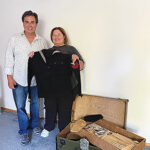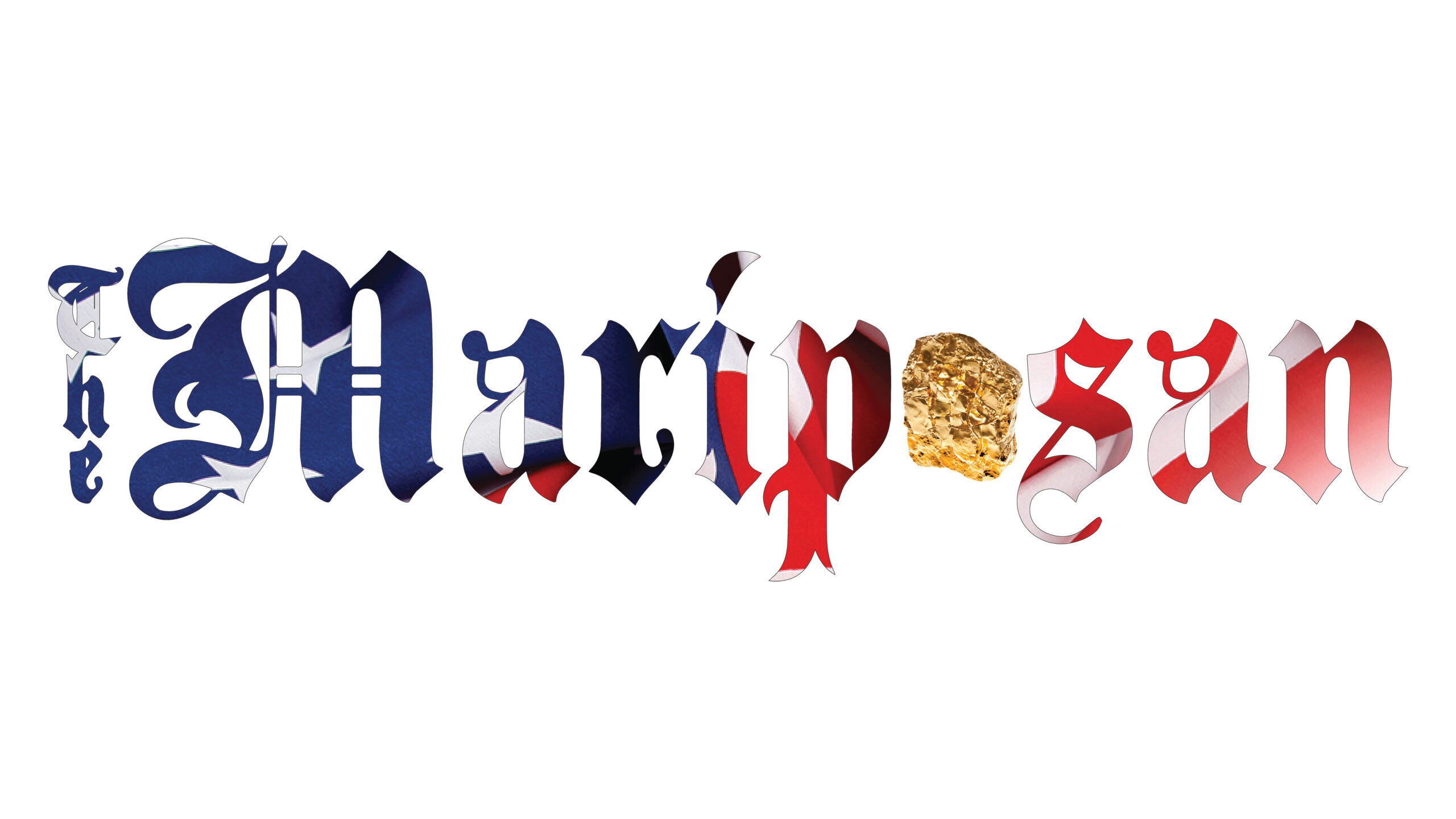
Will Starbucks ‘roast’ Mariposa’s coffee culture?
By R.D. Tucker
It wasn’t that long ago when the retail monster Walmart spread its wings across the fruited plain, and before the construction dust settled, that “mom and pop” shops on Main Street, USA, were shuttered.
Mariposa has embraced a sturdy coffee culture over the years with several independently owned small shops. Many of them also offer baked goods, freshly-made sandwiches and other tasty temptations, which created loyal customer bases for these local entrepreneurs.
Now, Starbucks, the largest coffee chain in the world, will soon enter the local coffee house scene. Starbucks is a global coffee house chain and coffee company based in the USA. It was founded in 1971 in Seattle, Washington by Jerry Baldwin, Gordon Bowker, and Zev Siegl, who originally began their operation by selling roasted coffee beans.
Eventually, in 1987, employee Howard Schulz bought the company and began its rapid expansion. It is this worldwide expansion that ultimately allowed Starbucks to nearly double its number of locations over the past decade. In 2022 the number of Starbucks stores worldwide reached 16,000 (including other segments owned by the coffee chain such as Siren Retail and Teavana).
While Starbucks has stores located all over the world, the products offered usually remain the same. The chain primarily sells coffee; however, it also offers consumers the opportunity to purchase other products. These include beverages such as teas, hot chocolates, smoothies, iced drinks, and a selection of food products.
There’s no doubt Starbucks will cast a shadow on Mariposa’s food and beverage business collective, at least initially.
The Mariposa franchisee, who remains mysteriously unidentified, leased the former Burger King facility from Ghia Management Services, which is based in Livermore and operates around 110 Burger Kings and over 30 Taco Bells. The Mariposan reached out to Starbucks’ corporate headquarters, but after being transferred to seven different people but no information was available regarding the opening date, expected number of employees, etc.
One local woman who identified herself as the new Starbucks manager said she has been advised by her district manager not to speak to the media. Yep, mysterious.
Amy Eaton, who owns and operates probably the largest coffee house in Mariposa, Pony Expresso, is apprehensive. “It’s scary, thinking about a major player like Starbucks moving into the neighborhood. We’re just getting back on our feet after a tough two to three years,” Eaton exclaimed. “I think we’ll be the least affected, but I know our loyal customers are going to at least try it out. We’re counting on them coming back because we offer the local flavor and personal attention we’ve come to be known for,” Eaton added.
Starbucks is known for its substantial pay scale for full-time employees, something with which local shops can’t compete.
“I’m not worried about that with any of the employees I currently have (three employees and a coffee roaster). It’s hard enough finding good employees, and I can’t afford $20 an hour,” Eaton explained. “The sad part for me is that in Mariposa, for at least the last 20 years, we’ve had a healthy coffee culture. We’ve had five or six shops at one time. We’re local players and our employees are local people, and we donate back to the community that supports us,” Eaton said.
Pony Expresso has been a fixture in Mariposa for years and years. It used to be located on Fifth Street prior to the Pizza Factory fire that razed the entire block in 2012. Just one year later, Pony Expresso was back in business at its current location on Highway 49 North in front of the 49er Center.
Nicole Wanner, the manager and daughter of the owners of The Coffee Shop located next to the Mariposa County Visitors’ Center on Highway 140, isn’t optimistic. “If there is an effect on us, I think we’ll lose a little of the tourist business,” Wanner said.
“I do think we’ll feel it, but not more than any other coffee shop in town. So many people here are big on the shop local thing that I think our customers will keep coming back. Our employees are all family, so I don’t think we’ll lose anyone, but locally we can’t compete with the wages they pay along with the benefits and everything else they offer,” Wanner stated.
At the popular Jantz Café and Bakery on Highway 140 near downtown Mariposa, operator Naomi Duhm isn’t very concerned. “I feel sorry for the coffee shops in town, but for us I don’t think it will have an effect because we don’t do coffee drinks. I’m not really worried about it, and it will be a plus to the tourists who come through after all the others are closed for the day.”
The Mariposan reached out via phone and email to Zach Harrison, who reportedly operates Sticks Coffee just off of Highway 140 in front of the River Rock Inn, but received no response. The owner of the new Cinnamon Roll Bakery and Café on Fifth Street didn’t have a comment other than to say, “The pie just got smaller for all of us.”
Toni Hetrick, a researcher who operates the “frugalfashionist” blog wrote, “According to a study in Public Health Nutrition, 47 percent of adults surveyed in the United States and 25 percent of Europeans said they would choose freshly brewed coffee from Starbucks over other options if offered. In the past five years, sales for Starbucks have increased by 13 percent annually, while sales at independent coffee shops (not part of chains such as Starbucks) grew by only four percent. This is because locals do not yet offer an experience on par with corporate establishments like Starbucks. Despite local shops’ competitive pricing and a wide array of better-quality offerings, consumers still opt for big names simply because they are more famous than local cafes.”
“In contrast, local coffee shops tend to create a more intimate atmosphere where everyone knows your name and offers a calmer setting in which to enjoy a cup of joe or even breakfast sandwiches. This might be why 50-75 percent of Americans with disabilities prefer local cafés over Starbucks for this very reason, according to disability advocates. Independent coffee shops are especially appreciated by those who wish to enjoy a fresh coffee with friends or family members. For example, local cafés might offer more seating (including wheelchair-accessible seating) and larger spaces for patrons to meet and socialize. They might even encourage people to linger for hours on end if they wish since they don’t depend on high turnover rates like corporate chains do to remain profitable,” Hetrick noted.
Kate Taylor at businessinsider.com wrote, “Starbucks’ biggest competition isn’t Dunkin’ Donuts — it’s your neighborhood hipster coffee shop. Instead of worrying about the impact of Dunkin’ Donuts or Tim Horton’s, the coffee giant is keeping an eye out on trendy independent shops, according to CFO Scott Maw.”
“We’re still not seeing any one competitor or even a smaller number of groups of competitors being an influence on our business at any time,” Maw said at the UBS Global Consumer and Retail Conference. “But what we have acknowledged … is the collective group of independent coffee shops out there, they are doing a lot of what Starbucks has been so good at for so long.”
“In other words, Dunkin’ Donuts running a promotion isn’t going to hurt Starbucks’ sales. However, the rise of trendy neighborhood shops has the potential to draw customers away from Starbucks in the long term — especially if Starbucks can’t compete when it comes to service and environment,” Taylor added.
That information might represent a light at the end of the tunnel for local coffee shops.
In fact, it appears that this issue of “David versus Goliath” is a two-edged sword. In many cases, local coffee shops are thriving because they provide a more intimate atmosphere where everyone knows your name (sounds like a Cheers rerun), and a calmer, less corporate environment.
At tastycravers.com, Shankar wrote, “Unlike the standardized menu at Starbucks, local coffee shops often pride themselves on their individuality, offering a wide range of specialty beverages and seasonal blends. They source their beans from small-batch roasters, focusing on quality and flavor profiles that can’t be found in mainstream coffee chains. The result is a cup of coffee that tells a story – a story of the coffee farmer’s hard work, the journey from bean to cup, and the passion of the baristas who carefully craft each drink.”
“Supporting local businesses has become an increasingly important aspect of consumer culture, and the same holds true for coffee. When you choose a local coffee shop over Starbucks, you’re not only indulging in a delicious cup of coffee but also contributing to the growth and vitality of your community. Local coffee shops are often run by passionate entrepreneurs who pour their heart and soul into their craft. By supporting them, you’re helping to create jobs, stimulate the local economy, and build a sense of community pride.”
“Furthermore, local coffee shops often serve as gathering spaces for neighbors, artists, and small business owners. They host open mic nights, art exhibits, and community events, fostering a sense of connection among residents. In contrast, Starbucks, with its standardized approach, may not have the same level of engagement with the local community. While they may contribute to philanthropic initiatives on a larger scale, the personal touch of a local coffee shop provides a different kind of impact,” Shankar concluded.
While the well-known brand name of Starbucks is bound to yank tourist traffic off of Highway 140, the local coffee shops and bakeries should be able to weather the financial storm by catering to their loyal, local customers, and continue to be key elements of their community.


















